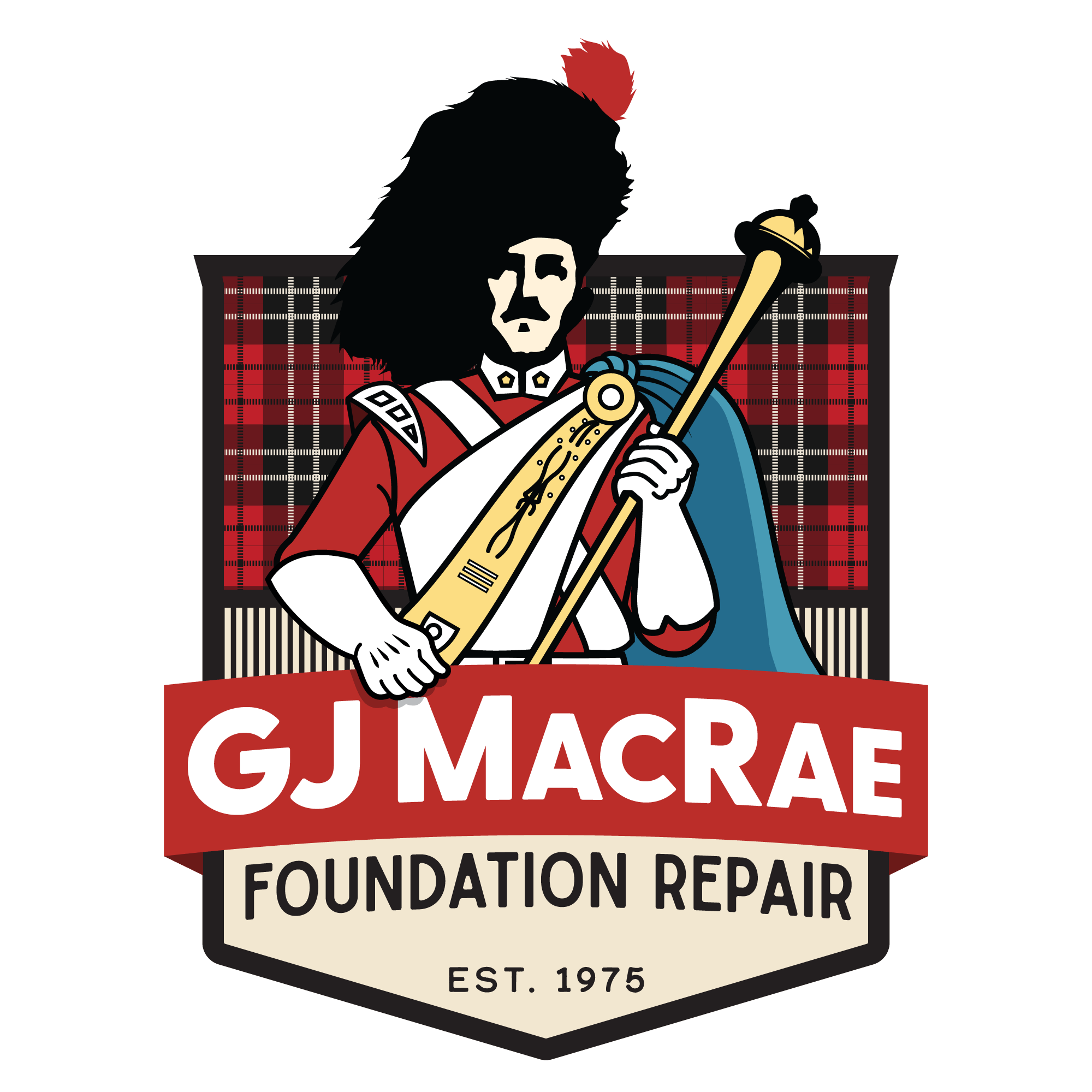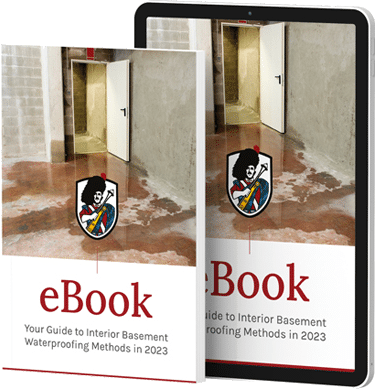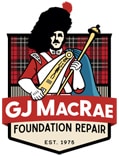The weather is quickly changing. This means that the ground is freezing, shifting, and could be causing trouble for your foundation. If you notice a leak in your basement this winter, it could mean that you have a foundation crack. This kind of job is different however, depending on when your home was built. Whether it’s a new build or a century home, the work involved may be different but the goal remains the same. No matter the year of your home the experts at GJ MacRae can handle any job!
The History of Foundations
Over the years there have been many different types of foundations. One of the early foundations that is still seen in homes today is fieldstone foundations. These foundations were constructed using stones that the builder found around the home. The builder would dig a hole for the foundation by hand and then place the stones at the bottom of the foundation with clay. This type of foundation would leak when it rained, so the builders began to replace the clay with proper mortar and covered the walls and the floor with a concrete mix. After a concrete ledge was poured around the edge of the floor, the job was complete. That is why in century homes you find that the basement is often wet and musty because water is still penetrating the old foundation walls. There is a positive about this however, it can be repaired!
Repairing a Century Home Foundation
There are two ways that you can repair a century home foundation. You can either go the route of historical restoration where you use only stone found on site and natural hydraulic lime mortar as opposed to modern day Portland mixes, or you can use the best waterproofing details by allowing us to use the latest techniques and materials. Each of these options will result in the foundation being repaired, it just depends on your preference and how long you want the repair to last.
What is Natural Hydraulic Lime Mortar?
Natural hydraulic lime mortar, or N.H.L as it’s referred to in the trade, is used not just to match existing mortar but also for its elastic properties. The fact that it matches existing mortar is a great feature for those people who are trying to maintain the integrity of their homes that are century homes. N.H.L. is used if areas of the mortar need to be replaced on the interior basement walls and the foundation has either a weak footing or no footing. Even if the wall shifts, N.H.L. will move with it.
What are Modern Portland Mixes?
Modern Portland mixes are another type of mortar. They are very hard and can be unforgiving which can result in the fieldstone or the rubble blocks in between the mortar cracking and disintegrating. Using the wrong materials can cause the structural integrity of the foundation to fail in 10 years instead of it lasting another 100 years. This is clearly a large difference and should be handled by the professionals at GJ MacRae.
Masonry White Washing
Looking for a bit of extra protection in your century home? White washing may be the solution for you! White washing is a cement based coating that is used to seal the interior foundation walls. It also makes the walls have a bit of white on them, which actually brightening the ambiance of the basement. Another benefit of using whitewashing on the walls in your basement is that it preserves the mortar. This allows for the fieldstone foundation to last even longer than it normally would. Many masons, historians, and foundation repair companies go back and forth about white washing. Some aren’t sure of it’s impact and others aren’t sure if it takes away from the historical value of the home. In talking with other foundation repair specialists as well as other masons and suppliers, fieldstone foundations that have had white washing applied tend to need much less work over time.
Repairing a New Home
The process for fixing a new home has no boundaries. Since there is no attachment to the construction or the age of the materials, we can perform the repair with the latest methods and materials. We will begin by digging 2.5 to 3’ on either side and right down to the footing or weeping tile. This creates a hole measuring about 6’ across by 6’ deep. We will inspect the existing weeping tile and if it is damaged or broken we will replace it. Once the wall has been exposed, the area with the crack must be cleaned and dried. The area will then be coated with a membrane, a layer of fiberglass, another membrane, and then a drainage board. This will help keep the hydrostatic pressure from building and will keep water away from the house. We will then hand fill the hole and leave your home looking as if we were never there!
It is clear that living in a century home is not for the faint of heart. These homes can be a bit of a challenge but a little knowledge about there repairs and the options available goes a long way. We don’t believe that older or newer is better. There is a reason your old home is still standing and it is because it was built to last. We just believe that with the right care, materials (both old and new), and techniques your century home can stand indefinitely.
Whether you have a new build or a century home, if you have a foundation crack and you’re looking to have it repaired, contact the team at GJ MacRae. Our team is filled with experts who will not only fix your home, but keep you informed throughout the process and help you decide which route to take when there are decisions to make. If you have any questions about foundation repair, contact us online or by phone at (905) 824-2557 today!







